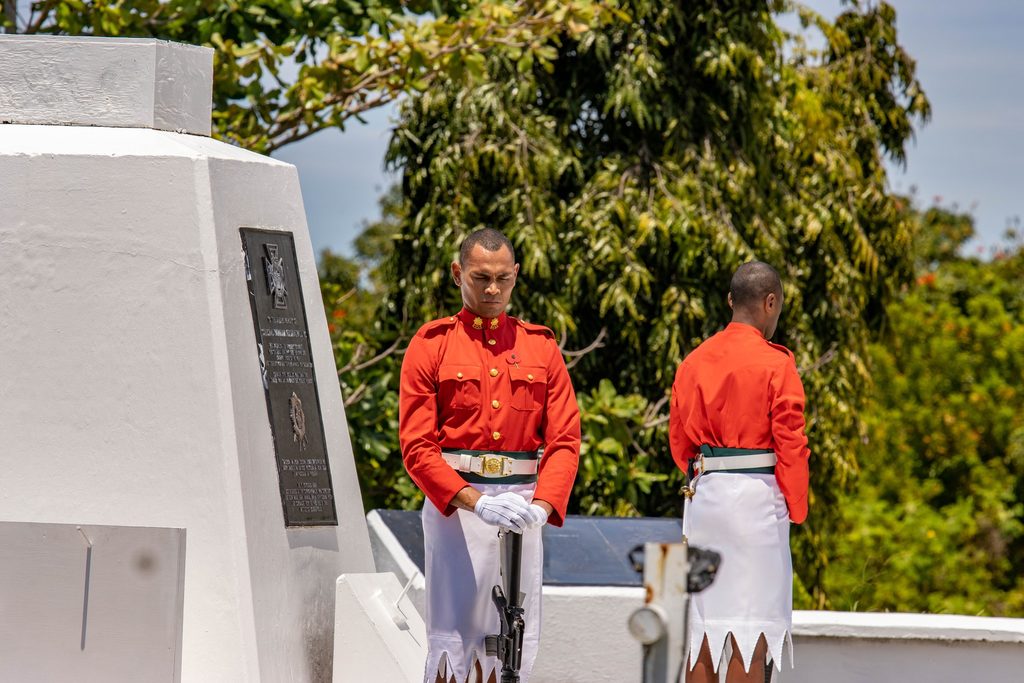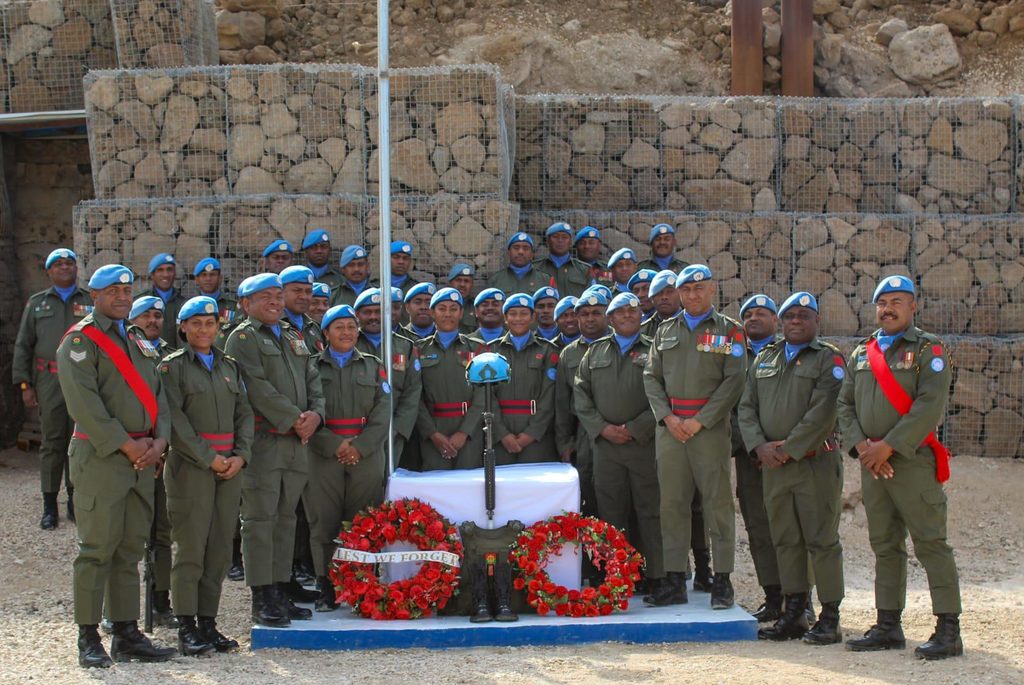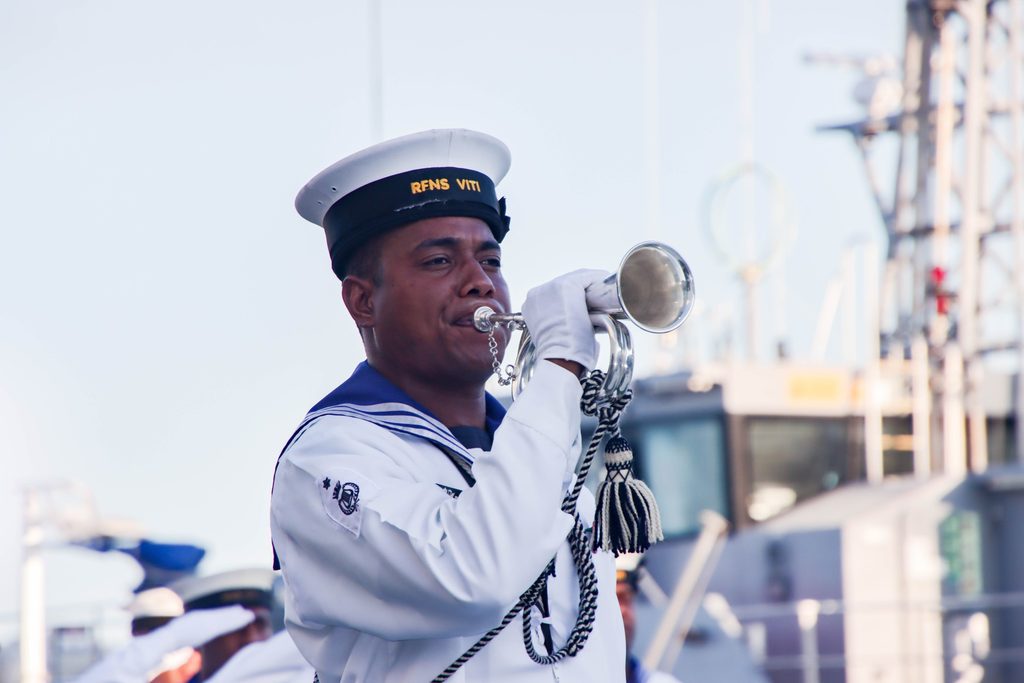Every year on November 11, nations across the Commonwealth fall silent to honour those who gave their lives in service, the men and women who fought and died in the Great Wars and in conflicts.
In Fiji, Remembrance Day carries deep meaning, not only as a moment of reflection but as a recognition of the generations of Fijian soldiers who have stood shoulder to shoulder with allies across the world.
This year’s commemoration, marked by wreath-laying ceremonies in towns and cities across the country, was accompanied by a growing call for Remembrance Day to be declared a national holiday.
It is a sentiment that resonates strongly, given the Fiji military’s long and storied past, a history marked by courage, sacrifice and steadfast duty to the Crown and later, the Republic.
Before the political upheavals of 1987, the then ‘Royal’ of Fiji Military Forces (RFMF) was seen as an institution of honour, a disciplined body of men driven by loyalty to the government and the service of the Fijian people.
The years since have been marked by rapid evolution and internal trials, as the RFMF found itself drawn repeatedly into Fiji’s political landscape.
Yet, amid controversy at home, Fijian soldiers have continued to earn respect and admiration abroad, particularly through decades of peacekeeping service under the United Nations banner.
Colonial roots, global role
The origins of the RFMF stretch back to 1920 with the establishment of the Fiji Infantry Regiment under British colonial rule.
During the Second World War, Fijian troops distinguished themselves in the Pacific campaigns, their bravery earning honours and forging a proud legacy of military excellence.
Following independence in 1970, the RFMF came under national command and quickly rose to international prominence through peacekeeping.
In 1978, the first battalion was deployed to Lebanon under the United Nations Interim Force in Lebanon (UNIFIL), and four years later, another battalion joined the Multinational Force and Observers (MFO) in the Sinai Peninsula. The 1990s saw further contributions, including Fiji’s leadership in “Operation Blue Lagoon” which was a regional peacekeeping intervention in Bougainville.
Image tarnished by politics
Fiji’s military history, however, is also intertwined with its political narrative.
The 1987 coup, led by then Lieutenant-Colonel Sitiveni Rabuka, marked a turning point, redefining the RFMF’s role and reputation. Further coups in 2000 and 2006 deepened the military’s involvement in national politics, raising questions as well as doubts about its place in a modern democracy.
Despite this, the RFMF remains constitutionally mandated to protect Fiji and its people, a role formalised first in the 1990 Constitution and reaffirmed in 2013.
Today, its focus extends beyond traditional security concerns to include new threats such as climate change, radicalism and transnational crime.
St Michael as a guide
The RFMF’s patron saint, St Michael the Archangel, symbolises the virtues of courage, humility, justice and unwavering faith, values that should continue to guide the force as it navigates the demands of modern Fiji.
In Christian tradition, St Michael is the leader of the heavenly armies, a defender of righteousness and a protector of the faithful. His example of obedience and service serves as a moral compass for the men and women of the RFMF.
As Fiji looks ahead to the 2026 General Election, the military’s challenge and duty is to uphold the principles of democracy, respect the will of the people and serve as a loyal guardian of the state, just as St Michael stood as the loyal servant of God.
The former Attorney-General Graham Leung, in an opinion piece in the The Fiji Times during the lead up to the historic 2022 General Elections, wrote that ‘democracy may be messy, but it’s alternatives are far worse’.
He stated that Article 131 of the Constitution was not a licence for the army to interfere with the will of the people when it is freely expressed and that the challenge for the RFMF and its leaders would be to help steer the country to a fully democratic political system where the Constitution, the rule of law and human rights were fully respected and protected.
RFMF soldiers stand guard during the wreath laying ceremony at the War Memorial in Suva. Picture: RFMF

Officers and soldiers of the First Infantry Fiji Battalion. Picture: RFMF



